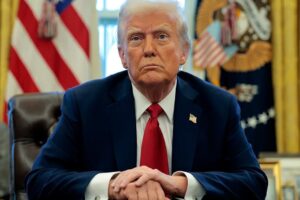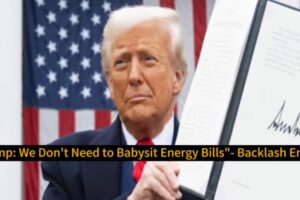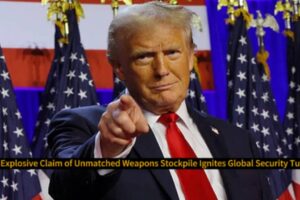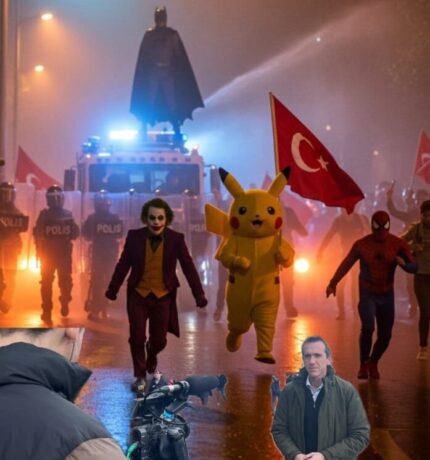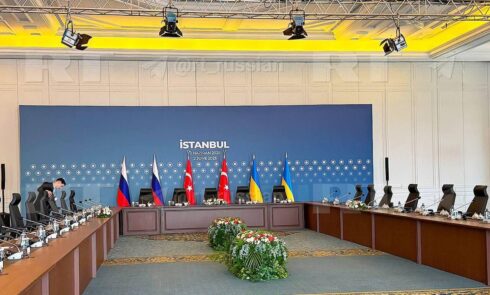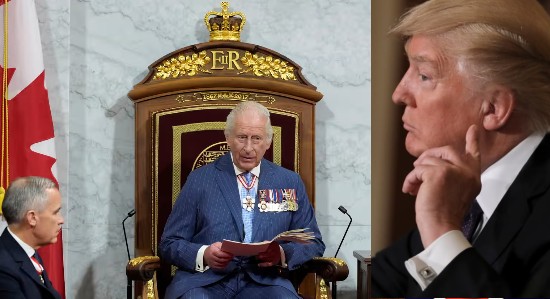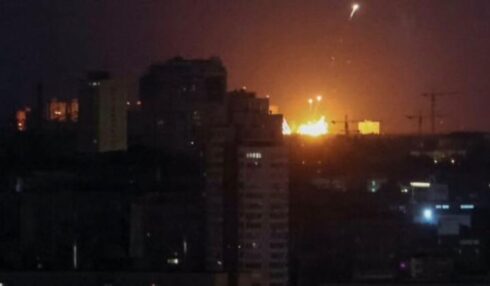BBC journalist Mark Lowen was arrested in Istanbul and deported by Turkish authorities after covering the country’s largest anti-government protests in years. Lowen, who had been in Turkey for several days reporting on the unrest, was detained for 17 hours before being expelled on the grounds of being a “threat to public order.”
The BBC strongly condemned the move, calling it a troubling attack on press freedom. In a statement, BBC News CEO Deborah Turness said: “Mark Lowen is a very experienced correspondent with a deep knowledge of Turkey. No journalist should face this kind of treatment simply for doing their job.” The broadcaster has vowed to raise the issue with Turkish authorities.
Lowen expressed his distress over the incident, saying: “To be detained and deported from the country where I previously lived for five years and for which I have such affection has been extremely distressing. Press freedom and impartial reporting are fundamental to any democracy.”
Protests Erupt Over Mayor İmamoğlu’s Arrest
The protests that Lowen was covering erupted after the arrest of Istanbul Mayor Ekrem İmamoğlu on corruption charges, which he denies. İmamoğlu, a key opposition figure and potential presidential candidate for the 2028 elections, is widely seen as President Recep Tayyip Erdoğan’s main political rival. His supporters claim the charges are politically motivated.
Since his arrest, demonstrations have spread across Turkey, with thousands taking to the streets. Police have responded forcefully, detaining more than 1,850 people, including 11 journalists. Turkish authorities insist that the judiciary is independent, rejecting international criticism that İmamoğlu’s arrest is politically driven.
Despite heavy police crackdowns and government warnings, opposition leaders and activists have vowed to continue protesting. The main opposition party, the Republican People’s Party (CHP), has announced plans for a major rally in Istanbul on Saturday.
Clashes and Crackdowns on Protesters
The demonstrations have intensified in recent days, with some of the most violent clashes occurring at Middle East Technical University in Ankara. Students protesting against İmamoğlu’s detention faced water cannons, tear gas, and plastic pellets as riot police attempted to disperse them. Reports indicate several injuries among both protesters and law enforcement officers.
Meanwhile, Turkey’s broadcasting regulator, RTÜK, has moved to silence critical media coverage. It recently imposed a 10-day broadcast ban on opposition TV channel Sözcü, accusing it of inciting unrest. This crackdown on the press has raised fresh concerns over media freedom under Erdoğan’s government.
International Outrage Over Press Freedom Violations amidst Lowen deportation
Mark Lowen’s deportation and the wider crackdown on journalists have drawn strong reactions from international media organizations and human rights groups. The Committee to Protect Journalists (CPJ) called the deportation an “outrageous assault on press freedom,” urging the Turkish government to allow independent reporting without fear of intimidation.
The European Union and the United Nations have also expressed concern over Turkey’s treatment of journalists. EU officials have called on Turkey to respect democratic norms, emphasizing that a free press is essential for accountability. The UN’s human rights office warned that suppressing journalists could further escalate tensions and deepen political divisions in the country.
Despite growing international pressure, the Turkish government remains defiant. President Erdoğan has dismissed criticism, labeling the protests as “evil” and accusing opposition forces of “disturbing the peace.” He has vowed to take strong action against those participating in what he describes as unlawful demonstrations.
What’s Next for Turkey?
With protests showing no signs of stopping, Turkey faces a period of heightened political instability. The CHP’s planned rally in Istanbul is expected to draw tens of thousands of supporters, setting the stage for further confrontations with security forces.
For journalists, the crackdown signals an increasingly hostile environment. Press freedom groups warn that the government’s actions against reporters like Mark Lowen could have a chilling effect on independent journalism in Turkey. Many fear that with a presidential election looming in 2028, the government will continue to tighten control over the media and opposition voices.
As the crisis unfolds, all eyes remain on Turkey’s leadership, opposition movements, and the resilience of its people in the face of mounting state repression.






